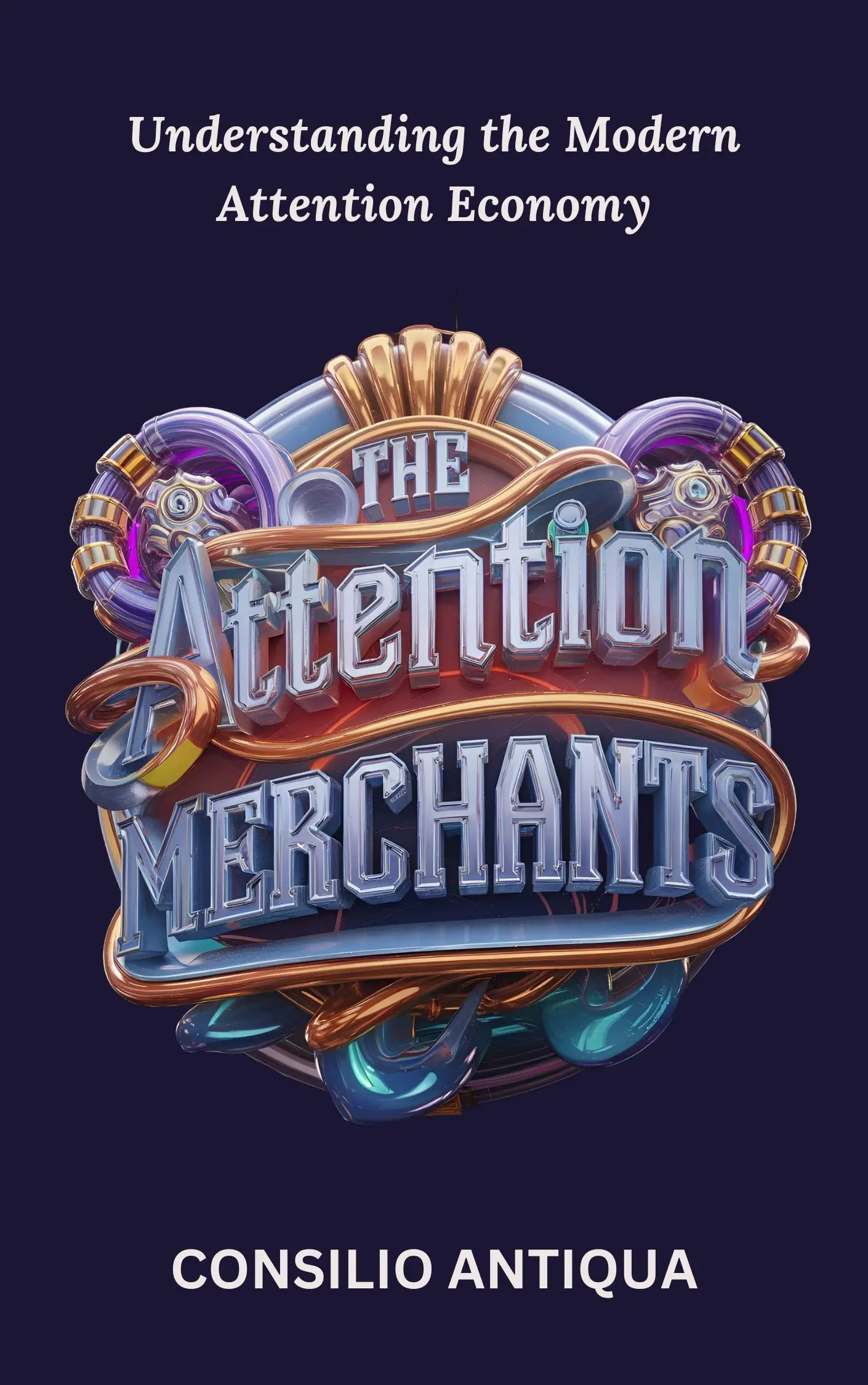
The Attention Merchants | Chapter 7. Ethical Concerns in the Attention Economy
Chapter 7. Ethical Concerns in the Attention Economy
Picture a typical teenager, David, sprawled on his bed, phone in hand. His eyes dart back and forth as he scrolls through an endless stream of videos, memes, and updates. Hours melt away as he navigates the digital labyrinth of a social media app, oblivious to the world around him. David is caught in the intricate web of the attention economy, a system designed to capture and monetize our most precious resource: our focus.
This relentless pursuit of our attention raises profound ethical questions. Are we truly in control of our minds when algorithms and persuasive design tactics constantly vie for our focus? The digital age has ushered in an era of unprecedented access to information, but it has also created a battleground for our attention, where tech giants and advertisers compete fiercely for every second of our time.
One of the most pressing ethical concerns in this new landscape is the lack of informed consent. Companies often track our online activity, collecting vast amounts of data about our preferences, habits, and even our emotions. This data is then used to tailor ads, personalize content, and subtly shape our online experience. While some level of personalization can be beneficial, the opaque nature of data collection and manipulation raises serious questions about user autonomy and privacy. Do we fully understand how our digital footprints are being used? Are we given a genuine choice in how our attention is directed?
The rise of "hypernudges" further complicates the ethical landscape. These design elements, often disguised as convenient features, subtly steer our behavior in ways we may not even realize. Think about the autoplaying videos that seamlessly transition from one to the next, keeping us glued to our screens. Or consider the pre-selected "agree to all" buttons that make it easier to accept terms and conditions without fully understanding their implications. These seemingly innocuous design choices can have a profound impact on our decision-making, potentially undermining our ability to make conscious and informed choices.
The constant bombardment of information and persuasive cues can also take a toll on our mental well-being. Studies have shown a link between excessive social media use and increased anxiety, depression, and difficulty concentrating. The addictive nature of digital stimulation can lead to a state of constant distraction, making it harder to focus on tasks, engage in meaningful conversations, or simply be present in the moment. Our mental integrity, our ability to think clearly and independently, is under threat in this hyper-connected world.
As we grapple with the ethical implications of the attention economy, the concept of a "right to attention" has emerged as a potential solution. This idea, championed by scholars and activists, suggests that individuals should have greater control over their attention and data. It calls for increased transparency in data collection practices, stricter regulations on manipulative design techniques, and the development of tools that empower users to manage their digital engagement more effectively.
The need for such measures becomes evident when we examine real-world examples of attention manipulation. Social media platforms, for instance, employ sophisticated algorithms to curate our feeds, prioritizing content that is likely to keep us engaged, even if it's not necessarily informative or beneficial. News outlets often resort to sensational headlines and clickbait tactics to grab our attention, sacrificing accuracy and depth for fleeting engagement. The consequences of these practices can be far-reaching, contributing to the spread of misinformation, the erosion of trust in institutions, and the polarization of public discourse.
So, how can we reclaim control over our attention in this digital age? The first step is awareness. By understanding the tactics used to capture our focus, we can become more discerning consumers of information and more mindful of our digital habits. We can choose to turn off notifications, set time limits for app usage, and actively seek out content that aligns with our values and interests. Practicing mindfulness, cultivating our ability to focus on the present moment, can also help us resist the allure of digital distractions.
The attention economy is here to stay, but we don't have to be passive participants in it. By becoming more aware of the forces vying for our attention, by demanding greater transparency and control over our data, and by actively cultivating our ability to focus, we can navigate this complex landscape with greater intention and agency. The future of our mental well-being, our relationships, and our democracy may depend on it.
